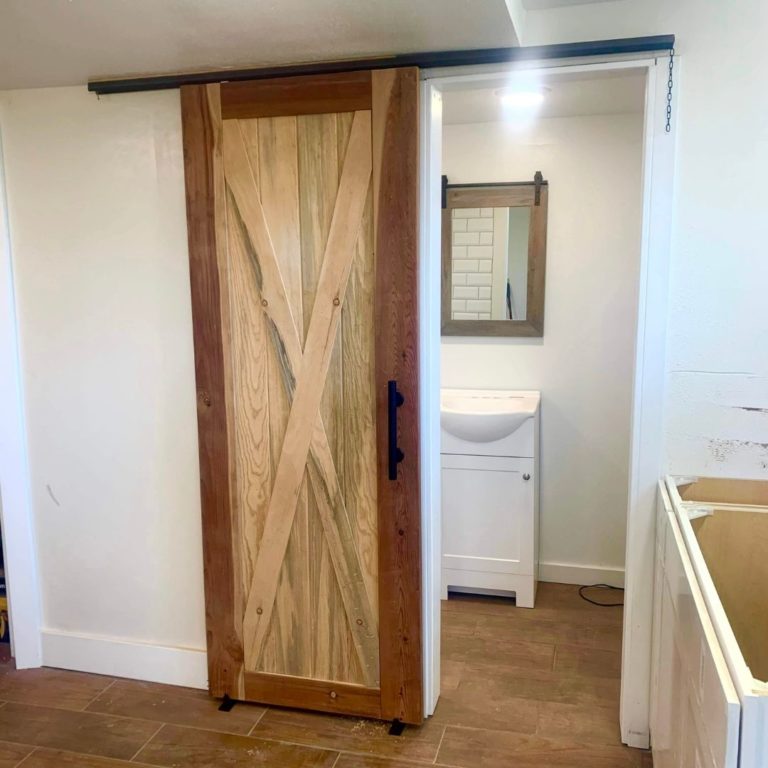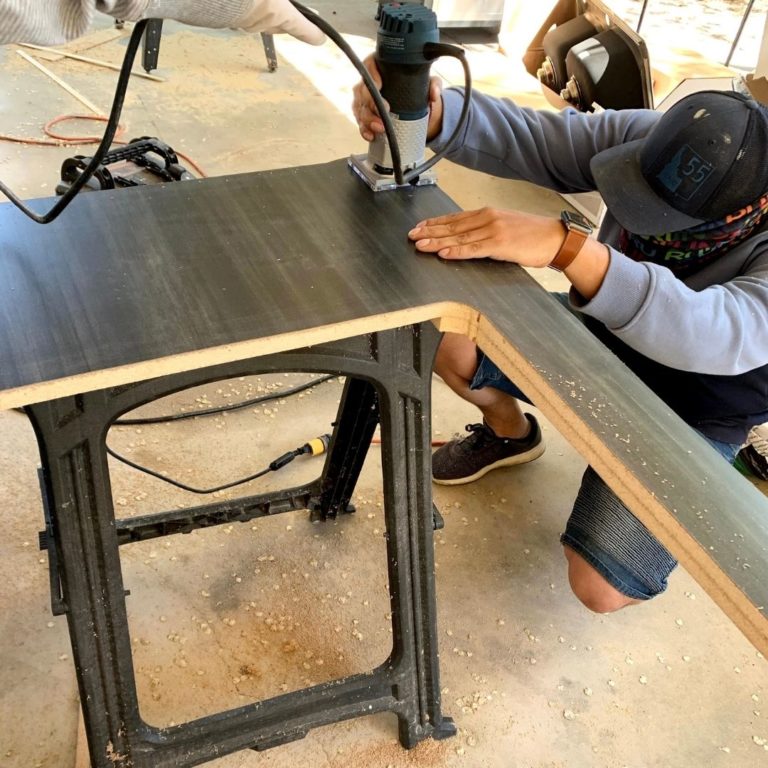The Ultimate Guide to Hiring a Contractor: Top 10 Things to Watch Out For

A little over a year ago we hired an acquaintance to build a vaulted craftsman style cover for our 1,200 square foot patio. This was a HUGE project that we embarrassingly did not do enough due diligence on. I’ll spare you all the details, but ultimately we ended up with spending almost $20k on a “cover” that was structurally unsafe and we had to tear it down shortly after it was built. Then we had to turn around and pay for it to be built AGAIN to the tune of $30k. So much material was wasted, we had water damage and issues with the house, our sprinkler system was all messed up…it was the gift that just kept on giving and it really sucked.
So believe me when I say hiring a contractor is a super important decision that should not be taken lightly! Whether you’re renovating your home or starting a large project, finding the right contractor is crucial to make sure that you don’t have the same experience that we did. A good contractor can make your project run smoothly (yay!) a bad one can blow your budget and cause you a hell of a lot of stress and worst case leave you with an unsafe structure. In this guide, I’ll cover the top 10 things to watch out for when hiring a contractor so you can hopefully avoid common red flags and find someone who will deliver quality work.
10 Red Flags When Hiring a Contractor
- Lack of License or Insurance: Always verify that the contractor you’re considering is licensed and insured. A lack of license or insurance can put you at risk if something goes wrong on the job site.
- Poor Online Reviews or Reputation: Check online reviews and ratings before hiring a contractor. If a contractor has a poor reputation, it’s likely for a reason.
- Lack of Experience or Specialization: Make sure the contractor you hire has experience in the type of project you’re undertaking. Specialization in a particular area can also be an advantage.
- No Written Contract or Agreement: A written contract or agreement is essential for protecting both you and the contractor. It should include the scope of work, timeline, payment schedule, and any other important details.
- Vague Scope of Work: Make sure the scope of work is clearly defined and includes all the details you discussed with the contractor.
- Payment Schedule or Payment Issues: Be wary of contractors who demand large upfront payments or who don’t have a clear payment schedule.
- No References or Portfolio: Always ask for references and examples of previous work. A good contractor should be able to provide both.
- No Permits or Compliance Issues: Make sure the contractor is complying with all local laws and regulations and has obtained all necessary permits.
- Poor Communication Skills: Effective communication is essential for a successful project. Make sure the contractor is responsive and communicates clearly.
- Unprofessionalism: Watch out for red flags such as unprofessional behavior, missed appointments, or failure to follow through on commitments.
Keep in mind that these are just things to be aware of and one or two of these may not mean that the contractor is not a good one. Just be cautious and if you see several of these red flags maybe reconsider before hiring them.

Tips for Hiring the Right Contractor
- Ask for Recommendations: Ask friends, family, and neighbors for recommendations. Word of mouth is often the best way to find a good contractor.
- Ask a lot of Questions: Interview potential contractors and ask them questions about their experience, qualifications, and approach to the project.
- Verify Licenses and Insurance: Always verify that the contractor is licensed and insured before hiring them.
- Review Portfolios and References: Look at examples of the contractor’s previous work and speak to previous clients to get a sense of their workmanship and professionalism.
- Check for Permits and Compliance: Make sure the contractor is complying with all local laws and regulations and has obtained all necessary permits.
- Get Everything in Writing: A written contract or agreement is essential for protecting both you and the contractor.
- Be Clear and Communicate Expectations: Effective communication is essential for a successful project. Be clear about your expectations and communicate them clearly to the contractor.
Hiring a contractor can be a time consuming and challenging process so remember to do your research, ask questions, and communicate effectively throughout the entire process. Good luck!






